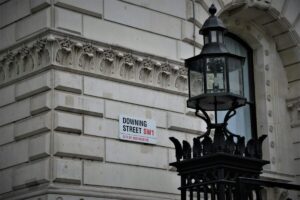Look to the future now, it’s only just begun. But will it bring a change to our spending habits asks Richard Harvey?
Like any ankle-biter, I looked forward to Christmas with almost manic anticipation, and in particular an annual trip to Hamley’s toy emporium in London with my sister and Uncle Bill.
He was one of the most fondly-remembered characters of my childhood. “Bit of a rogue, of course” said Mum, but Bill charmed her – and everyone else – out of the trees.
Always dressed in an immaculate three-piece tweed suit, redolent of gin and cigars, he had all the distinctive characteristics of a boulevardier renowned, but forgiven, for a roué lifestyle.
In my teenage years, he gave me a bit of advice: “My boy, if you’re not living beyond your means, then you’re not living properly”. This rather succinctly summed up his philosophy of life, which was as far removed from that of Scrooge as you could imagine.
So here it is…
Fast forward 50 years, and it seems that Bill’s mantra has been adopted by those of a more sober and serious persuasion, from the Chancellor of the Exchequer to the trade union barons at the GMB.
Not long ago, Chancellor Phil was dancing round his office at Number 11 (well, OK, he might just have allowed himself a quiet ‘Get In!’ given all the problems facing him) at the news that our budget deficit for the month of September had shrunk to a mere £5.9 billion – the lowest level since 2007.
That, of course, is simply stacked on top of the national debt, which is running at well in excess of £1.6 trillion. Uncle Bill would have been tickled pink. That’s living beyond our means, writ very large indeed.
Which hasn’t stopped the GMB from howling that public sector workers’ pay has dipped below that of their private sector counterparts for the first time in seven years as a result of “austerity”.
As recently as 2010, when it came to wages, public sector employees were enjoying a premium of almost six percent over the equivalent workers toiling for private business. Strangely, nobody ever asked the obvious question: “Why?”.
For generations, it had always been accepted that those working for government, local authorities and the rest of the public sector, would naturally earn less than their private sector equivalents to take into account a) their relative job security, and b) the generous pensions they could look forward to in retirement.
Everybody’s having fun
That all changed under Tony Blair and, in particular, Gordon Brown, who believed it was perfectly reasonable to employ lots more five-a-day outreach advisers, and create the sort of jobs which made The Guardian’s Situations Vacant supplement bulkier than ‘War and Peace’.
The GMB is aware that a huge proportion of public sector pay and pensions is paid for by the, er, private sector, and those who choose not to devote their lives to working for Crungewick Borough Council, but instead fund it through their taxes, are the ones who ought to earn the pay premium.
Instead, the union is demanding a “fully-funded, above-inflation pay rise that public sector workers need, and so desperately deserve”.
Quelle surprise. But then it is Christmas, a time of fairytale fantasies and over-indulgence. Just as Uncle Bill would have wanted.
So I’ll avoid a “bah, humbug” message to the Treasury and the GMB, and instead wish them – and, most of all, you – a very Merry Christmas and a prosperous (and fully-funded) New Year.









![[uns] office, appointment, staff](https://ifamagazine.com/wp-content/uploads/wordpress-popular-posts/787084-featured-300x200.webp)
![[UNS] tax](https://ifamagazine.com/wp-content/uploads/wordpress-popular-posts/787063-featured-300x200.webp)




